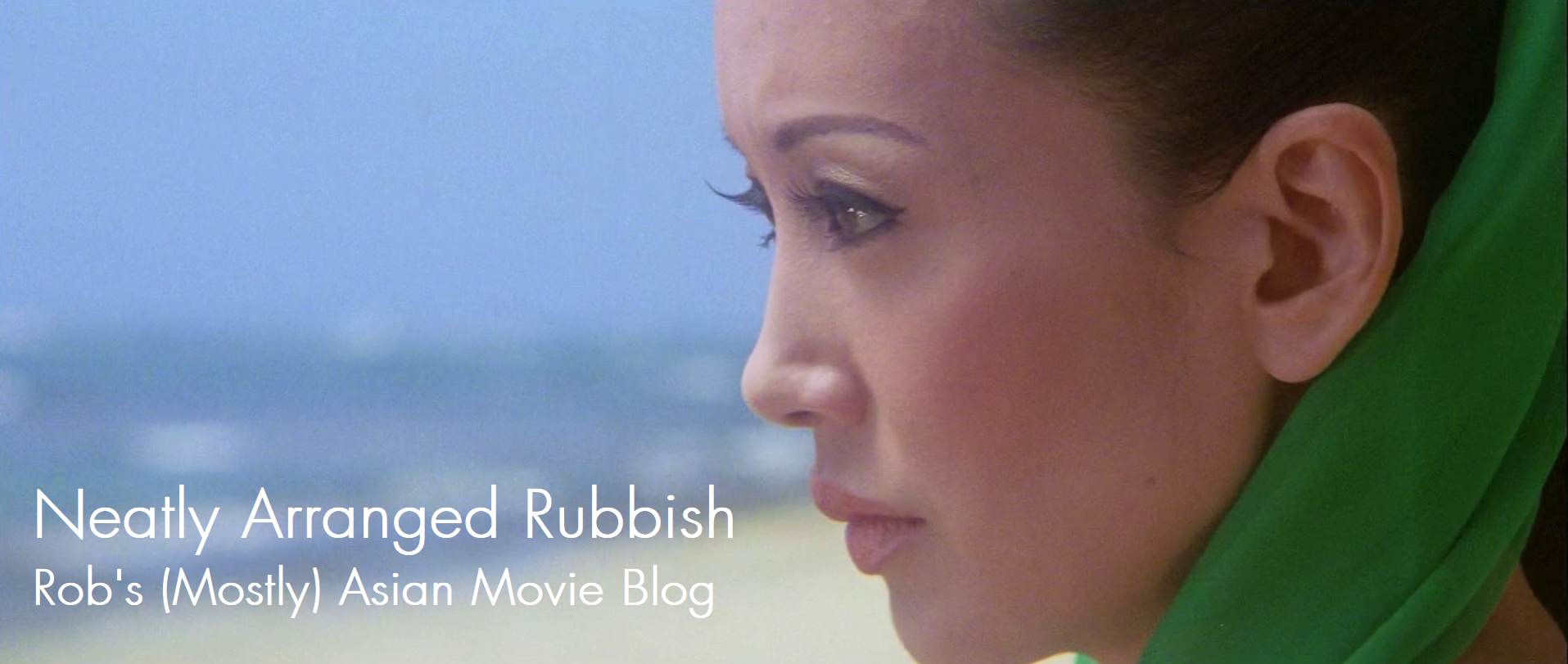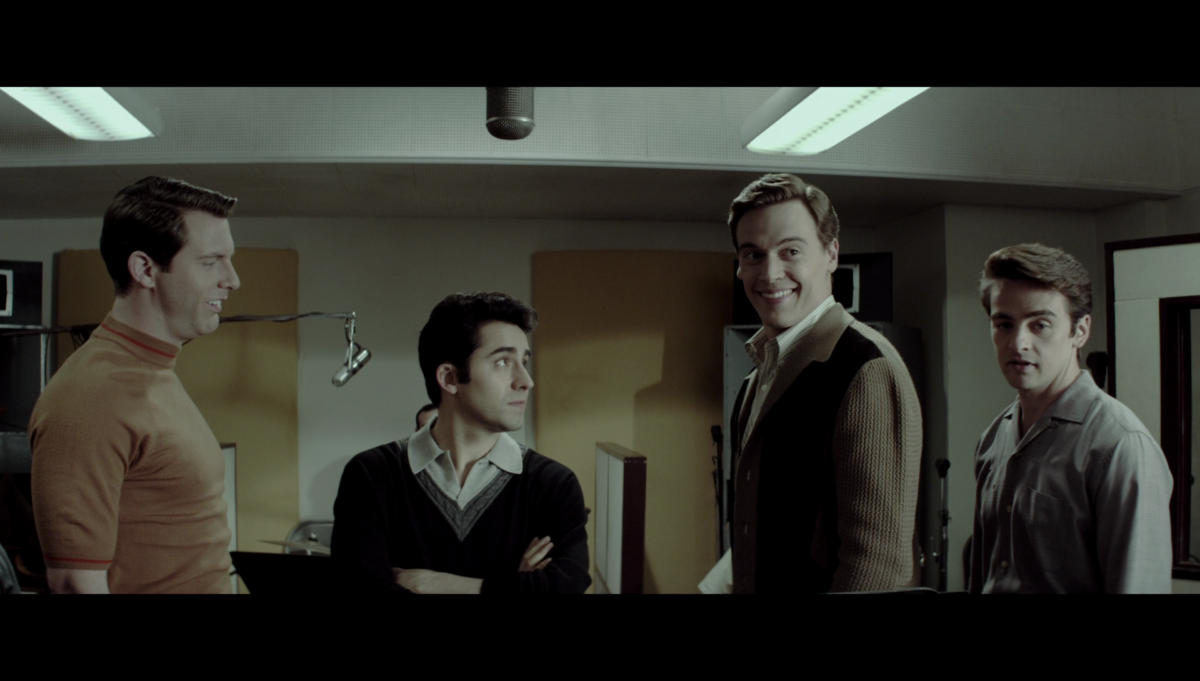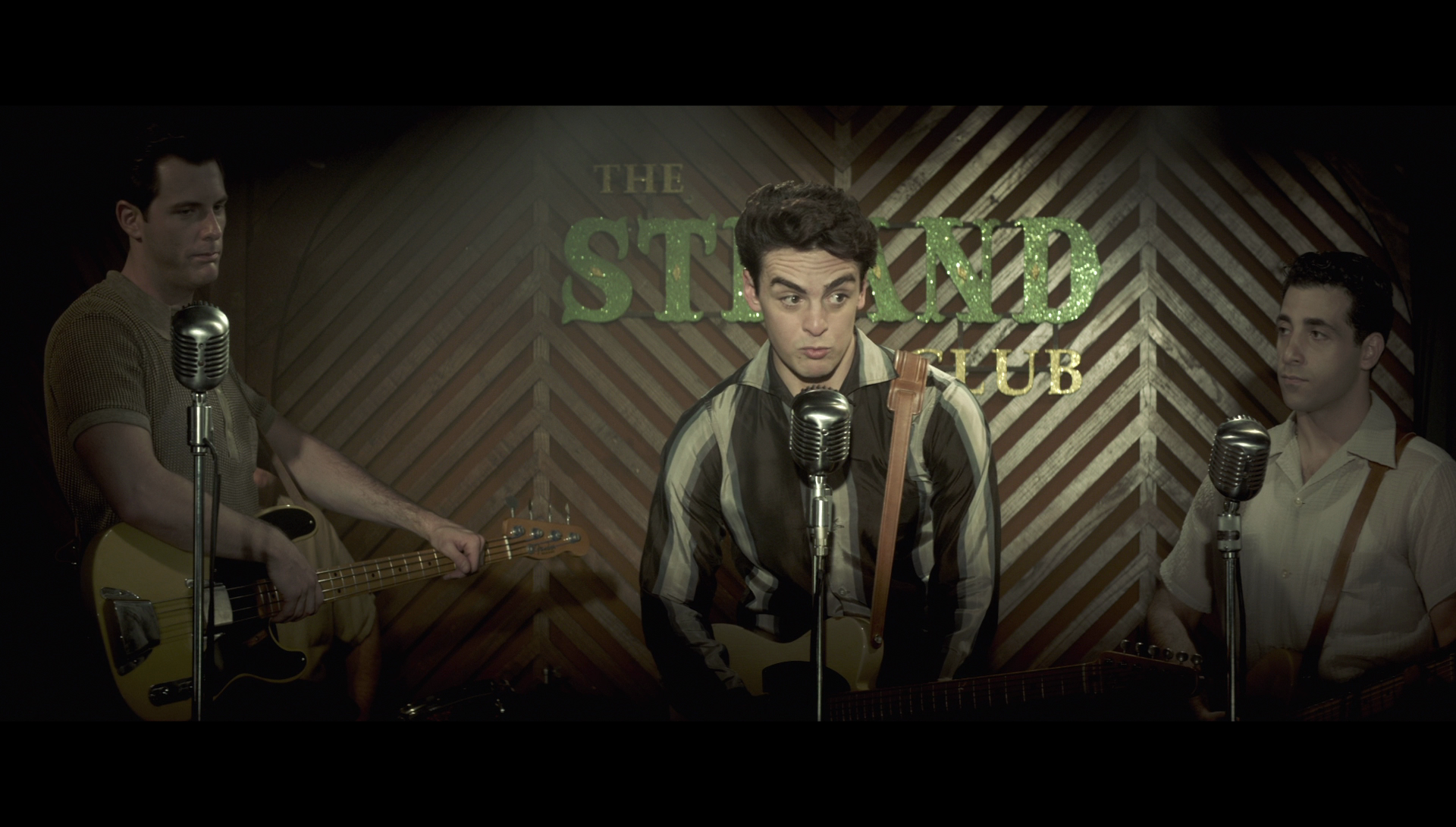Last Updated on January 23, 2021 by rob
The story of how young and gifted singer Frankie Valli (John Lloyd Young), and close friends Tommy DeVito (Vincent Piazza) and Nick Massi (Michael Lomenda), three close friends from New Jersey with dubious criminal connections – along with brilliant singer-songwriter Bob Gaudio (Erich Bergen) – became the smash hit pop group The Four Seasons and the internal pressures caused by Tommy’s gambling, which Valli felt obliged to pay off through decades of tour dates, which ultimately drove them all apart.
Based on a hit stage production, a so called ‘jukebox musical’ built around a string of Four Seasons hits, this movie version isn’t a traditional musical with its characters all singing and dancing so much as it is a drama with music. Yet Eastwood’s fondness for working in genre and giving the audience what they want while quietly subverting the rules means the drama and the music come together in unusual ways. The film boasts the convincing and discreet recreation of period one has come to expect from an Eastwood historical biopic (the film ranges from 1951-1990) yet it also includes old fashioned rear projection scenes clearly meant to evoke something of the stylised reality of old Hollywood musicals. That the lads come from a working class world with connections to organised crime also gives Clint the opportunity to have some fun with a few of the cliches of the genre, e.g., the feared local Godfather (Christopher Walken) whose barber accidentally cuts him when he’s having a shave, a bloody hit in a car that turns out to be a wind up and a laugh out loud tip of the hat to Joe Pesci’s most famous screen role and one-liner.
Eastwood gets the tone of these early scenes just right. We’re aware that none of these characters are angels but by the same token none of them are so unpleasant that we end up alienated by their behaviour. It’s a nice balancing act. Right the way through the movie the band members routinely break the so called fourth wall, looking into the camera to directly address the viewer, sometimes even smack in the middle of a musical number. Eastwood handles the ups and downs of the bands life on the road – including a blazing domestic row between Valli and his wife following an endless series of tour dates, plus a later sequence in which Valli’s teenage daughter Francine dies of a drug overdose – with a briskness and an emotional honesty that is downright bracing. And in the aftermath of his daughter’s burial the scene in which an exhausted Valli reluctantly agrees to sing the opening lines of what turns out to be one of the era’s great songs, Can’t Take My Eyes Off You, clearly thinking of his beloved daughter as he does, proves really moving.
As usual with an Eastwood pic the ensemble cast are uniformly excellent with Marshall Brickman and Rick Elise’s script giving each character distinctive personalities and problems. John Lloyd Young who played Valli in countless stage performances seems equally at home here as the singer gifted with a brilliant falsetto voice but whose nice guy demeanour means he ends up sacrificing the best years of his life for an endless tour of club dates in order to pay off the gambling debts of fellow band member, childhood friend and all round cheap hood, Tommy DeVito. Piazza is perfect as the latter, his crudeness perfectly encapsulated in the scene where he emerges from the shower and demands a towel, not so he can dry himself but so he can blow his nose on it. Of the remaining two band members Michael Lomenda is the proverbial fifth wheel, the guy who quietly does his bit until he finally explodes with fury in the film’s latter half after having suffered Tommy’s behaviour for years, while Erich Bergen turns in a sensitive, charming and scene-stealing performance as Bob Gaudio, the geeky song-writing genius behind the band’s greatest hits.
Gaudio’s initial encounter with their flamboyantly gay record producer Bob Crewe is an absolute hoot, ‘This was an era,’ Gaudio dryly observes, ‘in which Liberace was thought to be merely theatrical’! There’s also juicy supporting performances from the likes of Renee Marino as Valli’s wife, Christopher Walken, neatly cast against type as an avuncular local Godfather and Mike Doyle as record producer-svengali, Bob Crewe. In a nod to the musical’s stage origins the movie features a big song and dance routine that ropes in not just the main players but the entire supporting cast. Eastwood withholds this until right at the end but when it comes it feels so well earned after all the trials and tribulations the band have gone through that it proves downright exhilarating. The film’s thematic point; that the struggle this tight knit group of young men go through to escape their environment through their art – in this case their music – paradoxically ends up as the most vital time of their lives and something they spend their older years trying to recapture the essence of – proves both wise and touching. The director’s characteristic empathy for his characters, his refusal to judge any of them, feels just as heartfelt as his film’s evocation of a lost time and way of life.




As a fan of the Four Seasons I loved the film and this critique is right on the spot. As usual Clint Eastwood makes a film that is worth seeing.dcp155